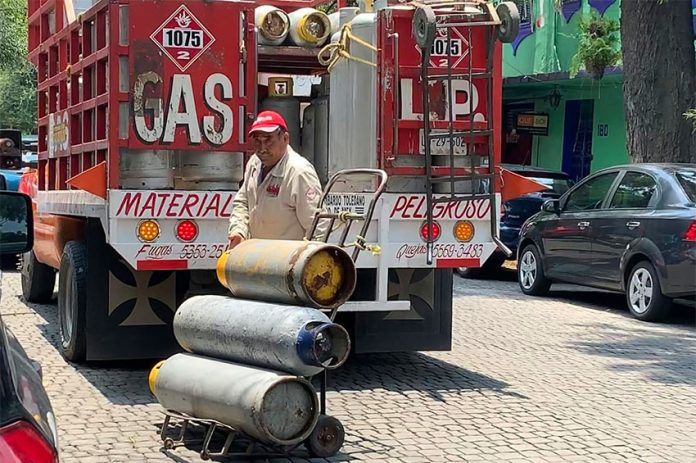Liquefied petroleum gas prices have fallen almost 11% on average after the Energy Regulatory Commission (CRE) published price ceilings for 145 regions across Mexico.
The CRE set maximum prices for the gas used by most Mexican households for cooking after the Energy Ministry (Sener) directed it to do so last week.
It was undeterred by a warning from Mexico’s antitrust regulator, the Federal Economic Competition Commission (Cofece), that the Sener directive was illegal because the Hydrocarbons Law establishes that the market determines gas prices and they can only be fixed if it is determined there is a lack of competition.
The average cost of gas fell 10.87% compared to the first fortnight of June after the CRE published price ceilings on Saturday.
CRE data shows that a kilogram of LP gas cost 25.94 pesos (about US $1.30) on average in the first half of June while the average price on Sunday was 23.12 pesos.
There was a 24.1% reduction in price in Mexico City, with a kilogram of gas selling for 21.33 pesos on average yesterday compared to 28.11 pesos in the first half of June.
The Mexican Employers Federation (Coparmex) noted in a statement that the price ceilings were published despite Cofece not having determined the existence of monopoly pricing practices in the gas market. Cofece began an investigation on May 31 to determine whether such practices were occurring but has not concluded its probe.
Coparmex also said that the ceilings established by the CRE and endorsed by the National Commission for Regulatory Improvement (Conamer) could have an irreversible negative impact on investment and the participation of new investors in the sector, “which plays against the urgently [needed] economic recovery and the competitiveness of the country.”
It said Conamer hastily approved the price ceilings set by the CRE without conducting an analysis of the impact and a public consultation process.
“… Sener asked the CRE to issue a very complex pricing policy in just three days, which places the quality of the regulation at risk and doesn’t allow the content to be enriched by the voices of experts on the issue,” Coparmex added.
To bring gas prices down, “more efficient alternatives” outlined in the Hydrocarbons Law, such as subsidies, should be applied, the employers’ group said.
Publication of the price ceilings comes almost a month after President López Obrador announced that the government would create a new state-owned company to distribute LP gas directly to customers.
He blamed five large distribution companies for “unjustifiably” raising gas prices above inflation and asserted that the new firm, to be called Gas Bienestar (Well-Being Gas), will sell the essential fuel at fair prices.
With reports from Milenio and El Universal
